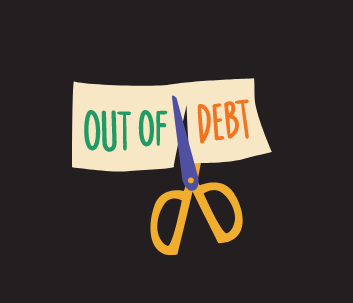Introduction
Loan settlement is a viable option for borrowers in India who find themselves unable to repay their debts in full. It involves negotiating with lenders to reach an agreement where the borrower pays a reduced amount, providing financial relief and an opportunity for a fresh start. In this comprehensive guide, we will delve into the intricacies of loan settlement in India, including the reasons why banks agree to settlements, the types of loans that can be settled, the benefits of settlement, key considerations during the process, and the importance of seeking expert advice.
Why Do Banks Agree to Settlements?
The decision of a bank to agree to a loan settlement is influenced by several factors. Primarily, banks want to avoid the negative repercussions associated with non-performing assets (NPAs). NPAs can tarnish a bank’s image, erode investor confidence, and subsequently devalue their stocks. As banks are often registered with stock markets, the impact of NPAs can be significant. Therefore, it is in their best interest to settle loan accounts rather than letting them default or become NPAs.
Additionally, the recovery process for defaulted loans is expensive and time-consuming for banks. They have to allocate resources and funds to employ recovery agents, tele-callers, and other means of debt collection. Furthermore, banks often have to share a portion of the recovered amount with these recovery agencies. By opting for settlement, banks can avoid these costs and potential legal complications, making it a more convenient and efficient solution.
Types of Loans That Can Be Settled
In India, loan settlement is primarily applicable to unsecured loans. Unsecured loans include personal loans, credit card loans, business loans, and other loans that do not require collateral. Settling unsecured loans is relatively easier compared to secured loans, where the bank holds possession or legal rights over an asset or property. While settling secured loans is not impossible, it carries more risk, and the chances of success are uncertain. The involvement of collateral creates complexities and potential disputes in the settlement process.
Differences between Unsecured and Secured Loan Settlements
Unsecured Loan Settlement
- Involves loans without collateral, such as personal loans and credit card loans.
- Lenders have limited options for recouping their losses as there is no collateral involved.
- Borrowers may have more negotiating leverage due to the absence of collateral.
- Interest rates on unsecured loans are generally higher to compensate for the increased risk.
Secured Loan Settlement
- Involves loans backed by collateral, such as property or vehicles.
- Lenders have the right to seize and sell the collateral to recover the outstanding debt.
- Lenders generally have more negotiating power in secured loan settlements due to their rights over the collateral.
- Secured loans typically have lower interest rates compared to unsecured loans.
Benefits of Loan Settlement in India
Debt Reduction
Loan settlement provides borrowers with an opportunity to significantly reduce their outstanding debt by negotiating with lenders. By paying a lesser amount than the total outstanding balance, borrowers can experience immediate financial relief.
Avoiding Legal Consequences
When borrowers default on their loans, lenders may resort to legal action. Opting for loan settlement allows borrowers to avoid potential legal complications and the associated consequences of defaulting on their loans.
Credit Score Improvement
Defaulting on loans negatively affects borrowers’ credit scores. However, settling a loan can help improve creditworthiness over time. Once the settlement is completed, borrowers can focus on rebuilding their credit scores by making timely payments and demonstrating responsible financial behavior.
Financial Stress Relief
Loan settlement alleviates the burden of high monthly payments and financial stress. By renegotiating the terms of the loan through settlement, borrowers can establish a more manageable repayment plan, regaining control over their finances.
Key Considerations during the Loan Settlement Procedure
Financial Situation Assessment
Before pursuing a loan settlement, borrowers should thoroughly evaluate their financial situation to determine if settlement is the right option. Considering income, expenses, and other financial obligations is crucial to ensure the feasibility of settlement.
Communication with Lenders
Establishing open lines of communication with lenders is essential. Transparently explaining financial difficulties can lead to more productive negotiations and increase the likelihood of reaching a favorable settlement agreement.
Documentation and Legal Understanding
Keeping records of all communications, agreements, and settlement terms is crucial. Seeking legal advice or consulting a financial expert can provide a comprehensive understanding of the legal implications and consequences of the settlement.
Importance of Seeking Expert Advice during Loan Settlement
Engaging the services of financial experts or advocates during the loan settlement process can significantly enhance the chances of achieving a successful outcome. Here’s why expert advice is essential:
Knowledge and Experience
Financial experts and advocates possess in-depth knowledge of the loan settlement process and legal requirements. They can guide borrowers through complex negotiations, provide valuable insights, and help them make informed decisions.
Effective Representation
Professionals experienced in loan settlements can effectively represent borrowers’ interests and negotiate with lenders on their behalf. They have the skills to present the borrower’s case persuasively and secure the best possible settlement terms.
Legal Compliance
Loan settlements involve legal aspects and documentation. Financial experts and advocates ensure compliance with legal requirements, reducing the risk of potential legal complications or disputes arising in the future.
Objective Advice
During emotionally challenging times, having an impartial expert can provide objective advice and support. They can analyze the borrower’s financial situation objectively and help explore all available options, including alternatives to loan settlement.
Conclusion
Loan settlement is a viable option for borrowers in India who find themselves unable to repay their debts in full. By negotiating with lenders, borrowers can reduce their outstanding debt, avoid legal consequences, improve their credit scores, and experience financial relief. Understanding the differences between unsecured and secured loan settlements, as well as considering key factors during the settlement process, is crucial for successful outcomes. Seeking expert advice from financial professionals or advocates can significantly enhance the chances of achieving favorable settlement terms and navigating the complexities of loan settlement in India.
Is Loan Settlement possible in India – Click Here
To know about credit score rebuilding – Click Here




2 thoughts on “What is Loan Settlement”